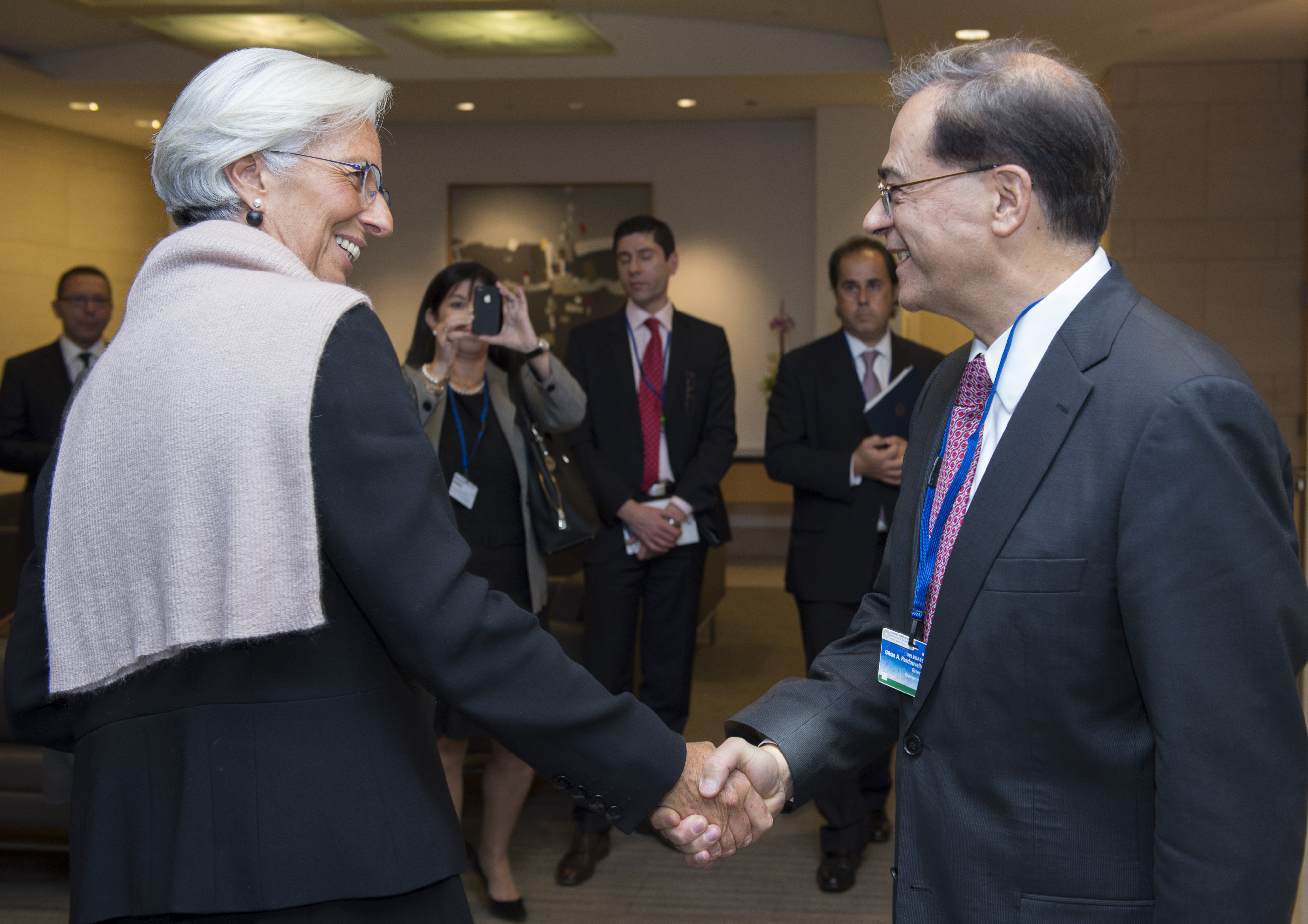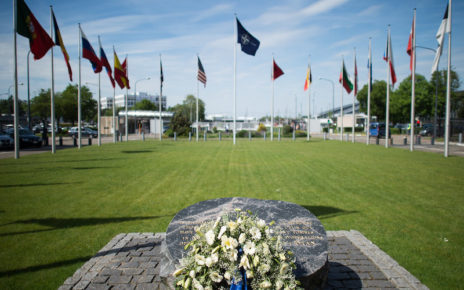The European Union (EU) and NATO share much common ground – politically and geographically. With the vast majority of NATO members being European states, and most of Europe holding membership in the European Union, it makes sense that shared security ambitions have manifested into collaborative activities. As an extension of democratic peace theory, which argues that liberal democracies tend to enjoy peaceful relations with each other, EU-NATO cooperation also establishes a kind of security community shaped by similar ideological institutions with comparable geopolitical goals. Since the signing of the EU-NATO Joint Declaration, the two organizations have been committed to cooperation on multiple political and military issues, including military exercises and building national defence capacities among members and allies. One notable expansion includes the Berlin Plus Agreement, which allows the EU to use NATO assets (provided that a member does not object), as was done during Operation Concordia in 2003.
The political and historical context of post-war transatlanticism, which promotes political and economic bonds between North America and Europe, has a strong hand in explaining the cooperation between the EU and NATO. Both organizations have signed official treaties which aim to encourage democracy, liberty, and peace. With this shared vision, there is certainly cause for concern if international “backsliding” continues among members of the international community. Democratic backsliding, which is viewed as the erosion of democratic rights, processes, and governance, is not only a threat to the internal function of both NATO and the EU, but also their cooperation and support of the rules-based international order in general.
Functionalism and Democratic Backsliding
On issues like intelligence sharing, where EU-NATO cooperation is eclipsed by the national interests of Turkey in the Cyprus dispute (previously confronted during diplomatic struggles to provide EU personnel with security in Afghanistan, following 2010 Lisbon Summit commitments to enhance EU-NATO cooperation and Euro-Atlantic security), there are signs of deeper causes and political problems linked to backsliding from treaty values within both organizations. This is exhibited in certain member states holding national interests that prevent the advancement of inter-organizational cooperation, despite many shared goals. Many of these policy roadblocks appear from holdouts and struggling democracies, such as Turkey. In this way, the pursuit of liberty and democracy is a common language of diplomacy that enhances the Euro-Atlantic political community and its institutional cooperation. The worldwide rise of nationalism and authoritarianism inherently clashes with internationalism’s common interests among liberal democracies supported by NATO and the EU.
Many areas of cooperation and conflict between both NATO and the EU are linked to democratic backsliding. However, democratic backsliding is not the only concern: electoral trends like “Pasokification” (named after PASOK, a Greek centre-left party, which dropped to nearly a tenth of its former size between 2009 and 2019) have seen historically popular centre-left parties across Europe become severely challenged. While some have argued that this stagnation may be the result of many centre-left parties turning towards austerity policies, trends like these have been linked to the popularization of more radical and fringe politics amid the rise of nationalism and populism. Many of the ascendant right-wing groups adhere to Eurosceptic views and occasionally completely challenge the liberal international order, such as flirting with Russian appeasement. In some of NATO’s declining or “flawed” democracies like Hungary, Poland, and Turkey, the issue is more dysfunctional.
Where there is smoke, there is probably fire
Few cases demonstrate this trend as clearly as Turkey’s authoritarian “hybrid regime” of democracy. In Syria, Turkey has destabilized the northern border region through occupation, established a “buffer zone” in an agreement with Russia, and threatened to release Islamic State prisoners to pressure diplomatically the EU. This threat to destabilize an area of operation overseen by many NATO allies (through Operation Inherent Resolve) would not only undercut the gains made in eliminating Daesh (commonly known as the Islamic State of Iraq and the Levant) in Syria, but also challenge local Kurdish Syrian Democratic Forces’ “feminist revolution” to establish an independent democracy from President Bashar Assad’s regime. Turkey has also blocked attempts at intelligence sharing between the EU and NATO over the Cyprus dispute, standing as one of the most crucial roadblocks to enhancing NATO-EU cooperation and another policy barring Turkey from EU membership. All the while, Turkey has agreed to a major arms deal with Russia, provoking the US Congress to implement quietly a halt on arms sales to a major NATO ally.
The assault on human rights and democratic values has occurred in other EU member states. In Poland, the popularity of far-right politics has led to the erosion of LGBTQ+ rights (through “LGBT-free zones”) and has sparked a constitutional debate hinting at the country’s possible departure from the EU. A similar situation, which has prompted discussion of EU expulsion, is also visible in Hungary, where Prime Minister Viktor Orbán administration’s brand of “illiberal democracy” has drawn significant backlash from activists and the EU for censoring LGBTQ+ content. Hungary’s increasing preference to collaborate economically with China and to exercise its veto capabilities on a joint NATO declaration regarding Ukraine is also concerning for NATO and the EU. Orbán has personally met with Russian President Vladimir Putin to discuss future bilateralism and—under diplomatic pressure—rejected sanctioning Russia following the 2014 occupation of Crimea.
In following this nationalist tendency, former American President Donald Trump may have viewed NATO as his own “Brexit” by floating the idea of a Washington departure from the Washington Treaty. Immortalized in a tense exchange with NATO Secretary General Jens Stoltenberg, Trump (incorrectly) viewed the two percent burden-sharing issue as a contractual breach, echoing similar Brexit language of freeriding. Trump also called the EU a “foe” and willingly shared classified intelligence with senior Russian diplomats. Through the same NATO-skeptical administration, serious concerns about democratic backsliding—exemplified by the Capitol Hill riots and accentuated by the United States’ new label as a “flawed democracy”—have emerged.
Aligning Democracies and Security
The main roadblock to improving further organizational cooperation seems to be the prevalence of national over international interests. Amid upset, the U.S. National Security Agency’s wiretapping of European politicians like German Chancellor Angela Merkel (with the support of Danish security resources) marks an instance that may further influence the future of EU security policy and the possibility of a more independent European pillar of NATO, if not revised.
It makes sense that two institutions aiming to promote liberal democratic values would cooperate. However, it is important to remember that the historical “transatlantic bargain,” a kind of mutual political and economic agreement between North America and Europe, may one day be up for renegotiation if viewed from a contractual perspective (as done by Trump). However, if the bargain is a contract, then its language is written with shared democratic values. Increasing strain may cause these terms to be revisited as speculation of European militarization grows, explicitly excluding the role of troubled NATO members like Turkey.
If the Euro-Atlantic relationship is to be maintained, member states of both organizations may need to ask if nationalism and anti-democratic tendencies are anathema to an international understanding of a functional progressive alliance. Upholding democracy, liberty, and human rights is a NATO and EU responsibility of each individual member. However, as currently seen in the disruptive cases of backsliders, NATO and the EU may also be challenged to sue for national obligations regarding freedoms and liberties after accession to either NATO or the EU.
Photo: Extremists Protest against NATO and EU, by red__koral__ph via Pixabay (modified). License.
Disclaimer: Any views or opinions expressed in articles are solely those of the authors and do not necessarily represent the views of the NATO Association of Canada.




